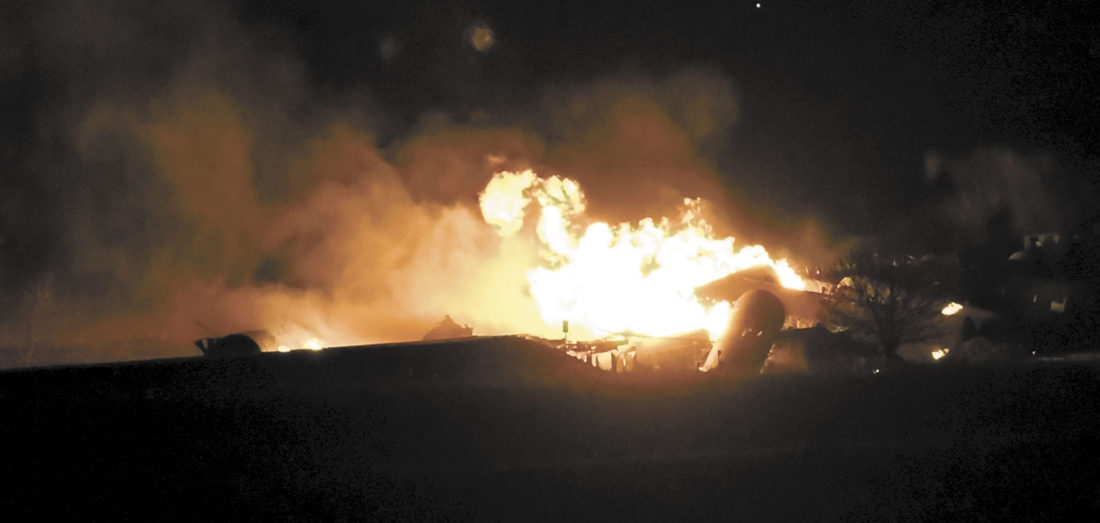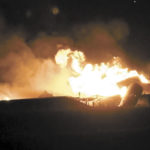322,000 gallons of ethanol released in derailment
NTSB releases first findings in Palo Alto train wreck
- -Submitted photo An estimated 322,000 gallons of ethanol burned when a train derailed near Graettinger in March, the NTSB reported.

-Submitted photo An estimated 322,000 gallons of ethanol burned when a train derailed near Graettinger in March, the NTSB reported.
GRAETTINGER — About 322,000 gallons of ethanol were released during a fiery March 10 train derailment in Palo Alto County, according to federal investigators.
The National Transportation Safety Board has released a preliminary report on the incident. While that report doesn’t state what caused the wreck, it does provide some details on what happened. The federal agency is continuing to investigate the derailment, and a final report may not be released for months.
The derailment occurred southeast of Graettinger near a bridge that carries the Union Pacific Railroad tracks over Jack Creek.
The safety board reported that the derailment occurred at 12:50 a.m. It was reported to local emergency responders by someone who saw flames near the tracks.
Those flames came from blazing ethanol that burned for about 36 hours.
No one was injured in the incident. Three homes within a half mile of the crash site were evacuated.
The Iowa Department of Natural Resources reported that no significant amounts of ethanol got into Jack Creek.
The train consisted of three locomotives, 98 tank cars full of ethanol and two buffer cars, according to the safety board. Buffer cars are train cars, usually box cars, that are positioned between tank cars full of hazardous materials and the locomotives to help shield the train crew from fires, explosions and leaks.
The locomotive leading the train had an event recorder, which saves data much like the black boxes on an airplane. Federal investigators said that event recorder showed the train was moving at 30 mph, which is the speed limit for that section of track.
The event recorder also revealed an emergency application of the air brakes, without any action by the train crew, at 12:50 a.m. The brakes were activated shortly after the locomotives and 20 cars crossed the bridge.
The National Transportation Safety Board reported that 20 cars went off the tracks. Fourteen of those cars ruptured and released the ethanol.
The derailment ripped up about 400 feet of track and destroyed the bridge.
The National Transportation Safety Board noted that the tank cars involved in the derailment are older models that are to be replaced by May 1, 2023.
The federal government is requiring safer tank cars in the wake of a series of fiery train wrecks since 2013.





